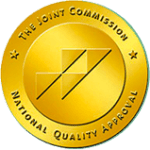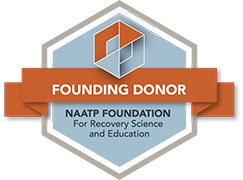Final Exams in Recovery
Exam season is fast approaching. Exams at any time in someone’s life can raise stress and anxiety levels. For people in recovery, stress and anxiety are often triggers for using and drinking. We want to help you navigate the difficulties of a stressful exam period and provide tools to stop you reaching for a substance to quell the fear. Don’t forget – “you can’t stop the waves, but you can learn to surf”.
How to manage stress during exams:
1. Sleep well:
A couple of months before your first exam, start to get yourself in a routine of sleeping well each night. Stop your studying at least an hour before bed. Use this time as a period of self-care: meditation; take a bath; or light household chores like ironing or straightening up can relax you. If you really must engage in exam prep, tidy up your books in preparation for the study period the next day. Aim to get at least eight hours of quality sleep each night. It will improve your ability to retain information in readiness for the exams ahead.
2. Talk to others if you feel worried:
Don’t feel ashamed to reach out and ask for help during your exam period. If you are in recovery, people around you will want to support you as much as possible. They will understand if you need a bit of extra help managing day to day tasks during this time.
- Ask friends to study with you and share class notes.
- Ask friends and family to join you to eat at break times or, better yet, ask if they’ll cook a meal so you don’t have to.
- Don’t fear asking your instructors to go over areas that you find particularly tricky. That’s what they are there for!
3. Get your study priorities clear before you start:
This is an extremely helpful tool. Discuss with your instructors which areas are most important. This will enable you to prioritize and reduce the amount of time you spend on irrelevant studying.
4. Decide on a revision method that works for you:
Everyone studies differently. Some people work best with visuals, others prefer drafting notes. Ask a tutor if you could have a study planning session to figure out which method feels most efficient for you. Make a plan by looking at each topic you need to cover and assessing how much time you will need to dedicate to each section. Then, write a realistic schedule outlining that. Plan your study times for when you are at your most productive. Some of us work much better first thing in the morning whereas others work better in the afternoons and evenings.
5. Take breaks:
Don’t forget to include breaks and time off in the schedule you’ve prepared for yourself. If your plan is unrealistic to begin with, you are only setting yourself up to fail – which will increase stress. It is normal to put yourself under pressure when you have exams coming up and the closer you get to those exams, the more likely you are to skip the breaks you’ve allowed yourself. Don’t do it! It’s not healthy and it it’s not productive, either. Non-stop study makes it difficult to retain information.
If you skip breaks you will feel burnt out and overly stressed. Everything you are trying to avoid. It’s important that you do not feel guilty for taking breaks, that you understand the necessity for them. Be strict with yourself on this point and ask others to be firm with you, as well. Get someone to call you every few hours, drop by for a cup of coffee, or to go for a walk. You will be grateful when you realize how much clearer your head is after a brief distraction.
6. Remember that you are in recovery:
Exam periods are stressful for everyone, but being in recovery presents its own unique set of challenges and you mustn’t forget that. You may need to make time for ongoing treatment, meditation and meetings. You might find that your concentration levels aren’t like other friends who aren’t in recovery, and perhaps you aren’t progressing as quickly as them because of it. Don’t be hard on yourself. It doesn’t mean you aren’t good enough or doing badly. It just means that your circumstances are different to other people. Be kind to yourself. When we are in recovery, sometimes we can feel that small problems are much bigger than they actually are. If things are starting to overwhelm you, reach out to someone and talk about it. It’s always good to get a different perspective.








